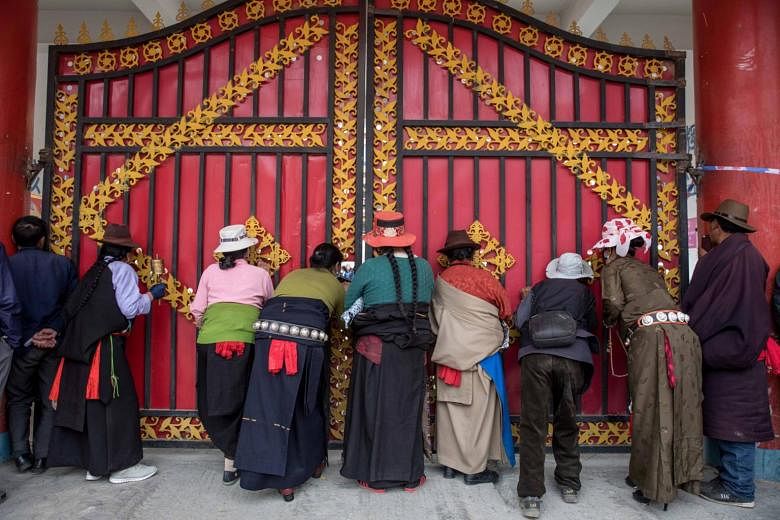BEH YUEN HUI
PETALING JAYA (THE STAR/ASIA NEWS NETWORK)-June is the most important month for millions of Chinese teenagers every year - a month they believe will somehow determine if they will become successful in life.
Since last month, the whole country has gradually entered the "gaokao" mood with print articles as well as TV programmes giving tips on ways to maintain a fit body and mind for the exam, food best for the examinees, stress relief methods and much more.
Gaokao, the National College Entrance Examination, is so important that anxious parents drop everything to focus on their children and residents give their cooperation by being in "silent mode".
This year, some 9.4 million people took the exam, which lasted for two days for most regions and three days for the rest, starting last Wednesday.
Like the STPM (Malaysian Higher School Certificate pre-university) examination in Malaysia, gaokao is an important academic test for high-school graduates who aim to go to local universities, colleges and other higher educational institutions, but the Chinese take it to the extreme.
Stop-work orders were given to construction sites while night entertainment outlets were instructed to "stay quiet" prior to the exam to create the best study environment for the examinees.
On the examination days, those taking the exam had the priority to pass through security checks at subway stations, as well as road closures, while escort services were provided to buses carrying them to the examination centres to ensure they arrive safely and on time.
"Noisy vehicles" like lorries and tractors were not allowed to enter areas near the examination centres during the oral test sessions and fines were also imposed on drivers and motorcyclists who honked excessively.
This year is the 40th year since China re-implemented the examination, which was halted for a decade during the Cultural Revolution.
Gaokao papers vary from region to region, although all participants nationwide sit for the examination simultaneously.
Most of the direct-controlled municipalities (similar to the Federal Territories in Malaysia) or provinces set their own papers. The rest use the standardised papers designed by the Education Ministry.
The papers, generally, include the compulsory subjects of Chinese, Mathematics and Foreign Language (mostly English), plus a combination of Science subjects (Physics, Chemistry and Biology) or Liberal Arts subjects (History, Politics and Geography).
Gaokao is no joke. It is the most difficult and competitive test of a Chinese student's 12 years of academic study, putting the examinees and their parents under enormous pressure.
Some parents even rent hotel rooms for their children to prepare for the exam, send them to the doorstep of the examination centres and wait outside throughout the test.
On the first day of gaokao, a robot sat for two sets of Mathematics papers, without Internet support, in Chengdu of southwestern Sichuan province, soon after the real test.
The artificial intelligence AI-MATHS completed the test for liberal arts students in Beijing with a score of 105 out of a full 150 points.
It then went on to sit for another version and finished in 10 minutes, with a score of 100 out of 150 points.
Later the same day in Beijing, another robot, Aidam, scored 134 points for the Beijing version of the Mathematics paper for Liberal Arts students.
Also taking the test were six top scorers of gaokao in previous years, including a Maths teacher and a Mathematical Olympiad trainer. They received an average of 135 points, one point higher than the robot, but the duration they spent on solving the questions was more than five times longer than Aidam.
A netizen teased that gaokao was an anti-human policy. He wrote: "It is so difficult that even robots could not answer."
Failing to enter universities is not the end of life. Almost everyone knows or has heard this, but it is easier to say than to accept it.
If you still believe that following the path taken by most people and doing what most people did is right, it is your choice.
But my philosophy of life is: "Take it easy, life can be very simple".

